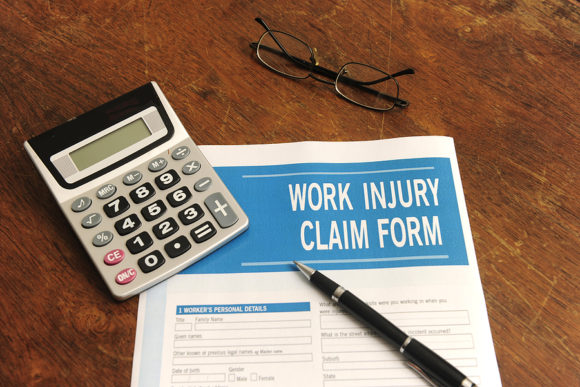The 6 Most Important Things To Consider When Hiring A Private Investigator
If you find yourself suddenly in need of services of a private investigator, you are bound to soon realize that it's not so easy to find the right person or company suitable for your specific case. There are many service providers out that appear competent enough to complete the task.
When you make an effort to discover the most important information regarding the private investigators you are considering, you will discover it easier to make a decision.
1. Is your private investigator fully insured and licensed?
Many people aren't conscious of the extensive list of problems they may encounter by hiring an investigator who is not licensed. For instance, such investigators are not qualified to testify on your behalf in any court of law. Even reports written by such investigators could do the opposite to your case as the investigator is able to be ruled out as an authentic witness, even if the information they've collected qualifies to be classified as essential evidence. Remember that life can take various unexpected twists and turns , so that when you engage a private investigator, you might not believe the matter will ever come to the courtroom. But what happens if it does? Are you prepared to let your money go to the water due to the legal issues pertaining to the investigator you hired? Also, make sure that the investigator you hire has the appropriate professional insurance. Some states require this in order to obtain a license, but request proof of current policies.
2. Are your investigators equipped experience and expertise to handle your assignment?
As much as a license is crucial, it is just not enough. Other factors must be taken into consideration. One of the most important things to evaluate is the experience of the person who will handle your case. It doesn't matter whether a company has fifteen years of experience or three years of experience, your case is a result of your investigator, not the company. workers comp lawyer
Always ask for the name and the license number for private investigators of the individual who is handling your case. It is then possible to verify this by looking up your license through the website of the state. Most every state has this. It will show who was the first person to get his license. A person who's had an active license for at least four years is usually an experienced professional. the work. If the agency you contact does not provide you with the name and license number of the person assigned to your case prior to you signing an agreement, this is an indication that they are trying to hide something.
Ask questions regarding your investigator. The fact that someone has law enforcement or military experience doesn't necessarily ensure they are skilled in conducting covert investigations. Find out how the investigator came how to conduct surveillance and from where they gained their experience. The ideal investigator has done work for a large national private investigation business for a number of years before. They specialize in the monitoring of workers' comp/disability cases. They're also very busy, which is why the investigator was given surveillance cases at least five days a week. The training and experience they got doing these are valuable and can be used in all types of surveillance.
Find out if the investigator has training on report writing, and ask whether he's ever been called to testify in court about his findings. A good lawyer can often break up a report and can make the investigator appear incompetent before a judge when he isn't sure the best way to format reports and how to handle the questions that are asked of them. Your case can be won or lost depending on the evidence.
Also inquire if they've any other qualifications that could be useful including a university degree in a related field, or prior work associated with investigating. This could show the dedication they have to their profession of private investigators.
3. Are you aware of the billing process?
Some clients may not comprehend the billing process used by the investigator they've chosen simply because it might differ from one investigator to the next. It is always recommended to pay retainers. Determine if you have to refresh the retainer when the money has been spent or if they will continue to work and charge you for the final amount after the work is done. Be sure to know whether you're being charged "door-to-door" or if you are only paying for actual case time. Find out how they charge for mileage. It is extremely important to ask where your investigator is located since this could quickly increase the cost of your case if paying for mileage or "door-to-door" charges. The cost of this can differ significantly between investigators so make sure you are certain about this.
Discuss any other costs that might be associated with the case. Certain firms charge "set-up" fees which is merely a charge for them to investigate your case. Some charge writing fees for reports and for all videos that they can obtain, while others include it at no additional cost. workers compensation
Keep in mind that the hourly rate does not indicate the quality or expertise of an investigator or his company is. It's simply an indication of the amount of overhead the person has or the amount of money that he wants to earn out of your investigation.
If you simply ask and make an effort to learn the details of billing, you'll be able to prevent yourself from confusion in the future.
4. Are you in possession of a written contract?
Additionally, a well-written contract can also help to remove any potential future miscommunications or confusions. Check that all fees are stated clearly. Don't expect a guarantee in the contract of the results you're trying to achieve. The investigator is being paid for his time and experience. It is impossible to ensure that the investigator will deliver results. Avoid working with any investigator who refuses to offer you a written contract. This will protect both you and the investigator in the event that there be any problems. Read it carefully and seek out an explanation in the event that you notice an issue that doesn't seem right to you.
5. Are they a member of any professional associations in their discipline?
A membership in a professional association or an association in the field and being active in it typically sends an important message regarding an individual's commitment to maintaining and even improving the industry standards in their field. This is a good test that will quickly reveal to you how experienced the PI you're contemplating hiring.
6. Are they under pressure or would they like you to make an informed decision?
There are some investigators or agencies that are high pressure salesmen who will insist that you sign immediately with them or their price could be increased in the event that you put off signing. It is also possible to receive a warning that the cost will be more expensive if it is deemed to be"a "rush case". The most honest investigators will advise you to make an informed decision. They also will not be charged extra for if they have a case that needs to be done immediately. It's your money, so beware of stories and tactics from an investigator that wants to gain your money. work accident
Conclusion
The truth is that private investigators can be extremely useful in many kinds of situations and can help solve many of the problems we face every day. By checking their license to discover the duration for which the investigator has had his license, by asking about their previous background as an investigator or by obtaining specifics about the fees, and making sure you take your time it is possible to identify a good investigator.
External links:
workers comp lawyer



Comments
Post a Comment